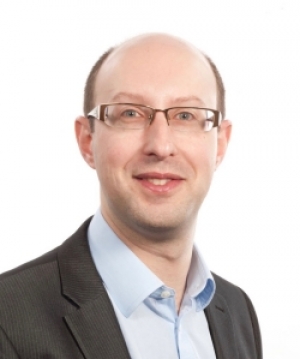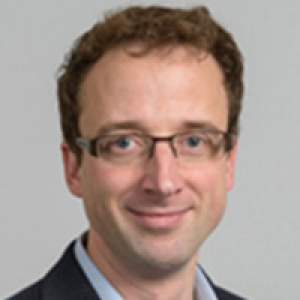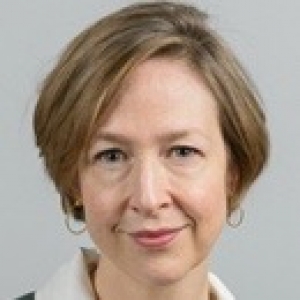Dr Rovel Colaco is a Consultant Clinical Oncologist based at The Christie NHS trust in Manchester.
Dr Colaco trained in clinical oncology at the Christie before undertaking specialist fellowships in the USA and the University of Florida Proton Therapy Institute and Yale University. He was the first UK doctor to train in proton therapy spending 12 months at the Florida Proton Therapy Institute where in addition to treating patients he also published several peer reviewed manuscripts on proton therapy research in international journals. Following this he was the first doctor selected to undertake a year long period of training in stereotactic radiosurgery and stereotactic radiotherapy at Yale University working with both the Gamma Knife and Cyberknife and gaining expertise in stereotactic treatment of brain, bone and spine metastases. He was appointed as a consultant at the Christie on his return to the UK and has been involved in development of The Christie Proton Therapy centre with a leading role in development of treatment protocols for proton therapy. He is the principal investigator at the Christie for the CORE trial examining the role of stereotactic radiotherapy in metastatic lung, breast and prostate cancer and also leads development of spine and bone stereotactic radiotherapy at the Christie.
Dr David Woolf is a Consultant Clinical Oncologist based at The Christie NHS Foundation Trust in Manchester.
Dr Woolf is a graduate of the University of Birmingham. Core medical and Clinical Oncology training was carried out in London (University College Hospital, The Royal Free and St Bartholomew’s), a Master’s Degree in Oncology at the Institute of Cancer Research and a Doctorate of Medicine after research at Mount Vernon Cancer Centre.
Dr Woolf plans and delivers radiotherapy at The Christie to patients with breast and lung cancers and also gives Stereotactic Ablative Radiotherapy (SABR) for lung cancers and oligometastases (cancers that have spread to the lungs). In addition he gives chemotherapy, endocrine therapy (hormone treatment) and targeted drug therapy.
He is a member of the breast and lung cancer disease orientated group at The Christie and remains up to date with the rapid ongoing changes in cancer treatment.
Dr David Thomson is a Consultant Clinical Oncologist at The Christie NHS Foundation Trust in Manchester.
Dr Thomson qualified from Oxford University Medical School in 2004, where he was awarded the Greenhill Exhibition in Medicine (Trinity College, Oxford) and achieved a First-Class honours degree (2001). He completed core medical training in Oxford and Manchester in 2009 and was then appointed Academic Clinical Fellow/Specialty Registrar in Clinical Oncology in the North West of England (2009-2015). He is now Consultant Clinical Oncologist and Honorary Senior Lecturer at The Christie in Manchester.
During a two year Doctor of Medicine (MD) research degree at the University of Manchester (2013-2015), he gained excellent clinical and research experience in technical head and neck radiotherapy and proton beam therapy. He was awarded the RCR Cyclotron Trust Fellowship for clinical experience in proton beam therapy at Massachusetts General Hospital (April 2013); and The Bernstein Family Bursary to support a clinical research Fellowship at the University of Pennsylvania (April-June 2014). He has delivered a number of national presentations and is widely published in head and neck cancer.
Dr Thomson is actively involved in medical education and a Clinical and Educational Supervisor. He achieved a Postgraduate Certificate in Medical Education with Distinction (Edge Hill University, 2015).
Dr Thomas Newsom-Davis is a Consultant Medical Oncologist based at The Chelsea and Westminster Hospital NHS Foundation Trust.
Dr Newsom-Davis trained at University College and Middlesex School of Medicine, and graduated in anatomy and medicine in 1998. He subsequently specialised in medical oncology at Charing Cross and Hammersmith Hospitals. During this time he completed a PhD in tumour immunology, funded by Cancer Research UK, and went on to become a Clinical Lecturer in medical oncology at Imperial College London, supported by the Wellcome Trust and Academy of Medical Sciences. He has published several peer-reviewed papers and presented at many conferences.
Dr Newsom-Davis specialises in the treatment of lung cancer, mesothelioma and other thoracic malignancies. Dr Newsom-Davis has taught widely at both under-gradate and post-graduate levels, as well as being an invited lecturer for various organisations including the Royal College of Physicians and the British Medical Journal. He foundered the first Royal Society of Medicine/LCA acute oncology course, and also runs regular simulation based acute oncology training courses at Chelsea and Westminster. His work was recognised in the 2011 Health Services Journal Awards.
Awards Dr Newsom-Davis has received include: 2011 Health Services Journal Awards, Clinical Service Redesign (short listed), 2006 McElwain Scholarship, Association of Cancer Physicians, and in 2006 President’s Prize, Royal College of Physicians.
He is a member of the Royal College of Physicians, Association of Cancer Physicians, European Society of Medical Oncology, British Thoracic Oncology Group and the British Medical Association.
Dr Susan Cleator is a Consultant Clinical Oncologist based at Charing Cross Hospital, part of Imperial College Healthcare NHS Foundation Trust.
Dr Cleator trained at Oxford University and Hospitals, and undertook her oncology training at the Charing Cross, Hammersmith, Mount Vernon and The Royal Marsden Hospitals. During this period she also spent three years working full-time on her PhD project at the Institute of Cancer Research and Royal Marsden Hospital. This focused on identifying a molecular assay for predicting the response of breast cancers to chemotherapy. She has published on this and a number of other aspects of oncology.
She works closely with her surgical colleagues at St Mary's hospital where she is responsible for the chemotherapy and radiotherapy aspects of their treatment, specializing in breast, colorectal and lymphomatous cancers.
Dr Cleator was previously a member of Breast Cancer Studies Group (overseeing Breast Cancer National Research portfolio) and is a member of the American Association Cancer Physicians and the British Medical Association.
Mr Stuart Wilson is a Consultant in Plastic Surgery based at The University Hospital South Manchester.
Mr Wilson qualified at Sheffield University Medical School and trained in Plastic Surgery in Leeds and Manchester. He undertook a travelling fellowship during 1998 where he spent time in the plastic and hand surgery units at Ljubljana in Slovenia, Zurich, Switzerland and Nancy in France.
He later underwent subspecialty fellowships training in Manchester for breast and hand surgery. Mr Wilson carries out a wide range of cosmetic procedures at The Alexandra Hospital including abdominal reduction, liposuction, breast enlargement and reduction, rhinoplasty (nasal surgery), face lift and eyelid surgery as well as thigh and arm lift surgery.
Professor Steve Schey is a Professor of Haematology based at King's College Hospital in London.
Prof Schey qualified at St George's Hospital in 1974, and later travelled to Australia where he worked at the Institute of Clinical Pathology and Medical Research in Sydney as Clinical Lecturer in Haematology.
He returned to London where he was the Bone Marrow Transplant Co-ordinator at the Royal Free Hospital and then the Royal Marsden. Later he moved to the Middlesex Hospital and subsequently served as Director of Clinical Haematology for the Guy's/St Thomas' Trust from 1993-2004 before moving to King’s College Hospital in 2005.
Professor Steve Schey was Secretary and then Chair of the UK Myeloma Forum 1999-2009. He has been Clinical Lead for South East Thames Cancer Network, since 2005. In addition, he is amember of the National Cancer Research Institute (NCRI) Haemoncology Cancer Steering Group, the NCRI Industry Adoption Panel and Chairman of the NCRI Myeloma Clinical Trials Committee.
Dr Steve Harland is a Consultant Medical Oncologist based at University College London Hospitals NHS Foundation Trust.
Dr Harland trained in medical oncology at the Royal Marsden Hospital following 3 years of research on clinical pharmacology (Hammersmith Hospital) and biochemical pharmacology (Institute of Cancer Research, Sutton). His MD thesis was on mechanisms of resistance to chemotherapy in human tumours. He worked as a senior lecturer in medical oncology for a year in Glasgow before being appointed to the Institute of Urology, UCL
Dr Harland was appointed Senior Lecturer in Medical Oncology at the Institute of Urology in 1986. Since then he has specialised in testis, bladder and prostate cancers and has led on the medical oncological treatment of these tumours at Middlesex and University College Hospitals.
He has served as Chairman of the MRC Bladder Cancer Group, of the North London Urology Tumour Board and he continues to chair the Castration-resistant Subgroup of the National Cancer Research Network Prostate Cancer Clinical Studies Group. He was on the Editorial Committee of the Government’s document for improving outcomes in urological cancer. He frequently speaks at International meetings.
Professor Stephen Mackinnon is a Professor of Haematology based at University College London.
Prof Mackinnon leads the bone marrow and stem cell program at UCL. He attended medical school at the University of Glasgow. He subsequently trained in Internal Medicine and Haemato-oncology in Glasgow. This was followed by a transplant fellowship at the Hammersmith Hospital in London where he developed an interest in graft-versus-leukaemia reactions. In 1990 he moved to Memorial Sloan Kettering Cancer Center in New York to continue this work in both the clinic and the lab. He made the use of donor lymphocytes less toxic by limiting the T cell dose administered to transplant recipients allowing separation of graft-versus-leukaemia responses from graft-versus-host disease.
In 1995 he returned to University College London to his current position. He became the Clinical and Academic Head of Department at the Royal Free Campus in 2004 and has recruited a highly effective and productive group of clinical and laboratory haematologists. He is an expert in the treatment of leukaemia, lymphoma, myeloma and in the use of bone marrow and stem cell transplantation to promote long-term cure of haematological malignancies. Current research interests include adoptive immunotherapy and immune reconstitution following allogeneic stem cell transplantation.
Stephen is a keen golfer whose desire to have a single figure handicap has been thwarted partly by his career choices, but primarily by a lack of real talent.

















